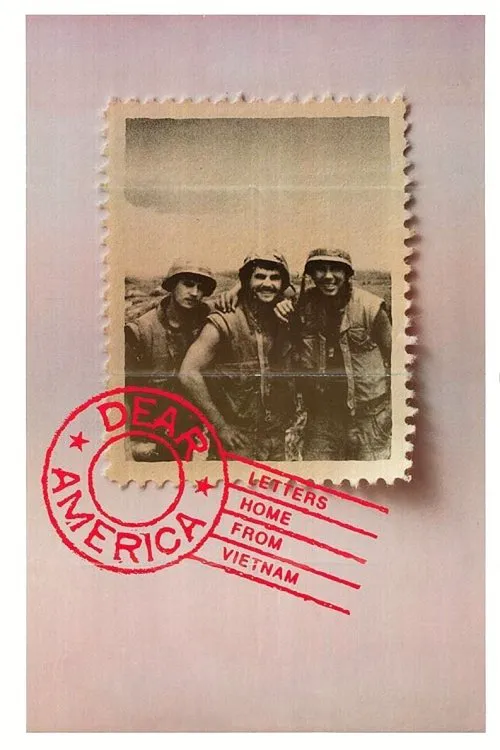Dear America: Letters Home from Vietnam

Plot
Dear America: Letters Home from Vietnam is a documentary film that delves into the lives of American servicemen and women who fought in the Vietnam War. The film serves as a window into the personal experiences and thoughts of those who served in the war, offering a candid and intimate perspective that has not been explored in previous depictions of the conflict. The narrative is constructed from a collection of letters written by soldiers during their deployment in Vietnam and serves as a poignant reminder of the human cost of war. The film begins with an introduction to the context of the war and the circumstances that led to the involvement of the United States in the conflict. It outlines the early stages of the American military presence in Vietnam, starting with the Gulf of Tonkin incident in 1964, which escalated US involvement in the war. The documentary then transitions to the letters themselves, which are presented as a series of vignettes that provide a glimpse into the daily lives of the servicemen and women in Vietnam. The letters convey a sense of disorientation and disillusionment that many of the soldiers felt upon arrival in Vietnam. They describe the difficulties of adapting to the harsh and unfamiliar environment, coupled with the strain of dealing with the dangers and uncertainty that came with being in a war zone. Many of the soldiers expressed a sense of patriotism and duty, emphasizing their reasons for joining the military and fighting in the war. However, the letters also reveal a deeper sense of uncertainty and confusion. The soldiers struggled to reconcile their ideals and values with the harsh realities of war, and many found themselves questioning the purpose and legitimacy of the conflict. A young Marine, who had enlisted to serve and prove himself, wrote to his family, saying, "I don't know how much more of this I can take." He described the intense heat, the sounds of gunfire, and the endless patrols, which left him feeling disoriented and lost. Another soldier, a sailor stationed on a ship in the South China Sea, wrote about the monotony of his daily routine. He described the long hours spent on duty, the drudgery of watching for enemy submarines, and the strain of living on a ship that was constantly at sea. He also expressed his frustration with the politics of the war, suggesting that it was a conflict that was being fought for unclear reasons. As the war continued, the letters reveal a growing sense of disillusionment among the soldiers. Many expressed frustration with the military bureaucracy and the apparent lack of progress or clear objectives on the ground. Some of the soldiers openly questioned the US government's motives and the role of the media in shaping public opinion. Others expressed a sense of shame and guilt, feeling that they were involved in a war that was morally unjust. Despite the hardships and uncertainties of their experience, the letters also reveal moments of camaraderie, compassion, and resilience. Servicemen and women formed close bonds with each other, sharing their hopes and fears, and supporting one another through the difficult times. Some of the soldiers even found ways to maintain a sense of normalcy, by engaging in activities like playing music, writing letters, or even learning new skills. One of the most powerful aspects of Dear America is its use of archive footage and news coverage to augment the letters. The film includes footage of major events, such as the Tet Offensive, the My Lai Massacre, and the Fall of Saigon, which provide a visual representation of the conflict's progression. However, these images are not presented as a detached or objective record of the war, but rather as a way to contextualize the personal experiences of the soldiers who wrote the letters. Throughout the film, the letters and the archival footage intersect and overlap, creating a multifaceted narrative that conveys the complexity and diversity of the soldiers' experiences. The documentary avoids simplistic or ideological interpretations of the war, instead offering a nuanced and multifaceted view of the conflict, which is filtered through the voices and perspectives of those who lived through it. Ultimately, Dear America serves as a powerful tribute to those who served in the Vietnam War, and their families who endured the hardships and uncertainties of their deployment. By sharing their letters and personal experiences, the film humanizes the conflict, highlighting the individual stories and emotions that were often lost in the broader narrative of the war. As one of the soldiers who wrote a letter described it, "This is the war we lived in Vietnam, a war of fire and mud, of fear and uncertainty, of hope and loyalty."
Reviews
Recommendations




